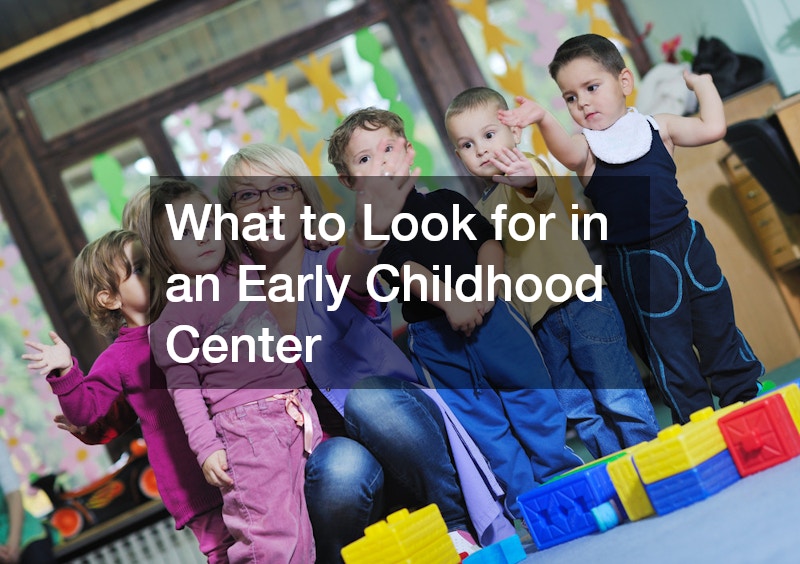
Choosing the right early childhood center is a crucial decision for parents and caregivers. The early years of a child’s life are formative and can profoundly impact their future learning and development.
This article outlines essential considerations to help you select a center that meets both your child’s and family’s needs.
How do I know if a childcare center is good?
Staff Qualifications and Experience
One of the first aspects to evaluate in a childcare center is the qualifications and experience of the staff. Highly trained educators with relevant qualifications are more likely to provide a nurturing and educational environment for children. Research shows that teachers with advanced degrees in early childhood education tend to implement more effective teaching strategies.
Experienced childcare providers are also equipped to handle diverse childhood behaviors and learning needs. They can tailor their teaching methods to support each individual child’s growth and milestones. This expertise is not only beneficial in fostering development but also in ensuring a safe and stimulating environment.
Before enrolling your child, inquire about the staff-to-student ratio, as this significantly affects the level of individual attention your child will receive. It is important for parents to feel confident that their children are in capable and trustworthy hands. Hence, reviewing staff credentials and experience is paramount when selecting a center.
Child-to-Teacher Ratio
The child-to-teacher ratio is a vital factor in determining the quality of care and education provided. Low ratios ensure that each child receives personalized attention and support, contributing to better learning outcomes. Smaller groups also allow teachers to observe and meet the developmental needs of each child effectively.
When the ratio is too high, individual children may not get the guidance or help they need. This could hinder their progress, impacting both social and educational development. Statistics suggest that lower child-to-teacher ratios typically result in more positive interactions among children and between children and staff.
Parents should also consider how ratios change throughout the day, as some centers may have different staffing levels at different times. Ensure that the center maintains optimal ratios consistently, not just on paper but in practice. Verifying this information can provide peace of mind knowing your child is well-supported at all times.
Curriculum and Learning Environment
A thoughtfully designed curriculum and engaging learning environment are the foundations of a quality early childhood center. Curriculum should be developmentally appropriate and cater to different aspects of a child’s learning, including cognitive, social, and emotional growth. A balanced approach can prepare children for future schooling by promoting critical thinking and problem-solving skills.
In addition to formal content, an effective curriculum includes interactive and play-based learning opportunities. Educational play encourages creativity and can be instrumental in developing language and motor skills. A vibrant environment that includes a variety of learning materials and resources further enhances a child’s exploratory learning experience.
Parents should look for evidence of a well-rounded approach in the center’s curriculum and learning setup. Environments that prioritize safety while providing stimulating activities can significantly benefit learners. Visiting the center to observe how educators utilize space and resources can give insights into how they foster creativity and learning.
What safety and health standards should a childcare center follow?
Cleanliness and Hygiene Practices
Ensuring cleanliness and hygiene in a childcare center is crucial for the health and wellbeing of children. Regular sanitation of toys, furniture, and facilities minimizes the risk of infections and contagious diseases. High standards of cleanliness reflect a center’s commitment to providing a safe space for children.
Parents should inquire about the center’s routine cleaning and disinfection schedule. Childcare facilities must adhere to strict hygiene protocols to promote health in a shared environment. Observing the premises during a visit can give you a better idea of their cleanliness standards.
Consistent sanitation is particularly important during flu season or health crises. Centers that prioritize hygiene instill confidence in parents regarding their child’s safety. The right facility ensures children learn in an environment where health is not compromised.
Security Measures
The safety of children is a top priority and centers must enforce robust security measures. Secure premises with controlled access points protect children from unauthorized individuals. Security protocols need to be in place to cover emergencies like fire or extreme weather conditions.
Staff should be well-trained in emergency response and regular drills should be conducted to prepare for potential scenarios. Ensuring that the environment is safe for all activities, both indoors and outdoors, is essential. Security measures also include clear policies for visitor management and child pick-ups by authorized persons only.
Parents should be informed about all safety protocols and confidently feel that their children’s security is prioritized. A center that values safety will also engage in regular safety assessments and improvements. Reassured parents can trust that their children are in a safe and nurturing environment.
Nutrition and Meal Planning
Good nutrition is vital for the healthy development of children, and early childhood centers should provide balanced meal options. Centers should have meal plans reflecting dietary guidelines and offering a variety of nutrients to support physical and cognitive growth. It’s important for meals to be prepared in hygienic conditions to ensure children only receive healthy foods.
Many centers work with dietitians to develop menus that cater to different dietary needs. Parents should inquire about how special dietary requirements are managed, whether through allergies or specific dietary restrictions. The provision of healthy snacks and drinks is also a consideration, ensuring nutritional needs are consistently met throughout the day.
Understanding a center’s approach to nutrition can give insight into their priorities in supporting children’s health and development. By observing meal times or discussing meal plans, parents can gauge how centers enforce healthy eating habits. Ultimately, a focus on nutrition complements overall childcare quality, reinforcing the importance of a well-rounded care program.
.



